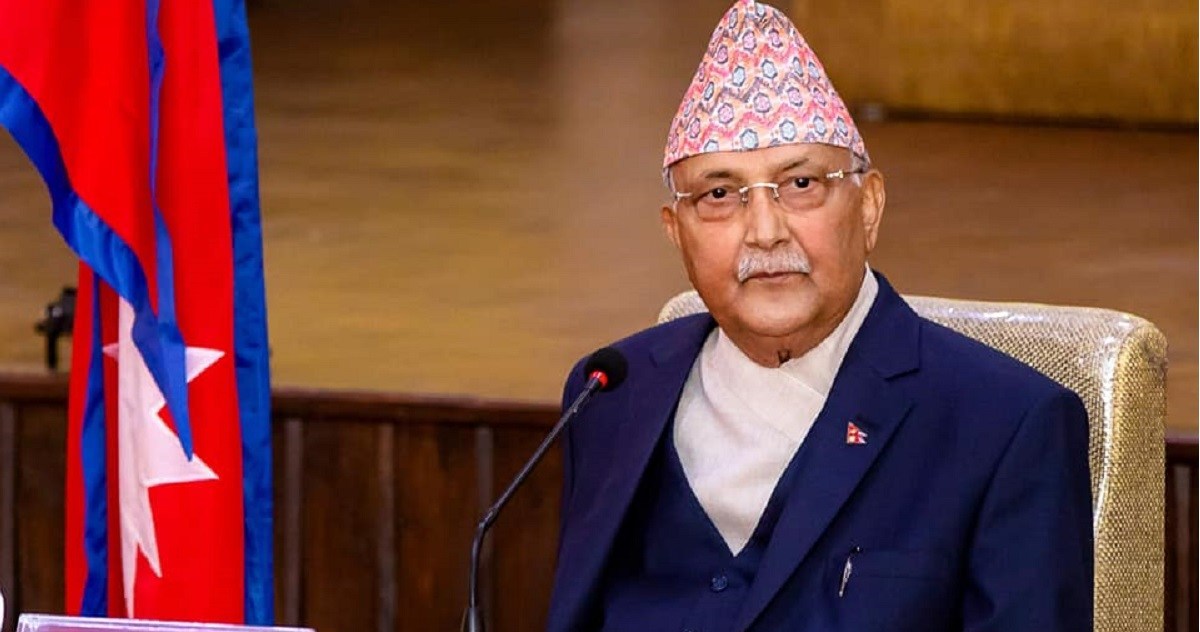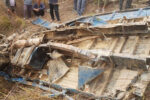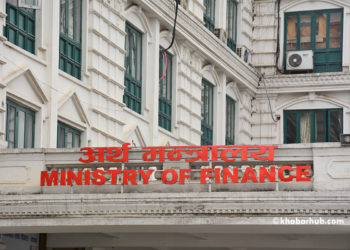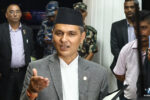KATHMANDU: Nepal seems to be destined for more political turbulence with Prime Minister KP Oli’s government bringing an ordinance arbitrarily, and the country’s President Bidhya Devi Bhandari authenticating it hastily.
The country, which proudly announced to the world the revised height of Mt Everest last week, seems to be caught up in the whirlwind of another crisis.
Now, all eyes are set on PM Oli — widely considered a shrewd player in politics – as to how he handles the snowballing row within his party, the Nepal Communist Party (NCP), the ongoing anti-government demonstrations, and the spread of coronavirus pandemic.
PM Oli’s “abrasive” move of recommending the Constitutional Council (First Amendment Ordinance on Work, Duties and Procedure, 2077 BS) — triggered by internal wrangling in the ruling NCP — has been widely criticized and condemned by all sides but his coterie.
After the issuance of the ordinance, the meeting of the Constitutional Council can be held if the majority of its members — Prime Minister, leader of the main opposition party, Chief Justice, Speaker, and Chairman of the National Assembly — are present.
Nepal, which has been grappling with the spread of the coronavirus pandemic, is currently reeling under political crisis with both spontaneous and fabricated demonstrations indicating rising discontent against the government.
With this, only three members of the Constitutional Committee can hold the meeting and take any decision paving the way for Prime Minister Oli to take any decision in his favor.
Earlier, the quorum for the meeting was considered to be reached only when the council Chairperson and four members were present.
The Constitution of Nepal has a provision of the presence of all Executive, Judiciary and Legislature, and the main opposition party in the Constitutional Council to make sure that the government does not make any unilateral appointments in the constitutional bodies.
Besides, this surly move had “saddened and angered” his (foe)comrades, particularly NCP Chairman Pushpa Kamal Dahal and camp, which demanded immediate withdrawal of the ordinance.
This is not the first time that he has brought an ordinance. PM Oli had on April 20 issued an ordinance allowing appointments at the constitutional bodies on the basis of a majority of the Constitutional Council.
Or else? The disgruntled camp of five – Prachanda, Madhav Kumar Nepal, Jhalanath Khanal, Bam Dev Gautam and Narayan Kaji Shrestha – which has been alleging PM Oli of being imperious would be “compelled” to take a stern step against Oli, who came to power with a “nationalistic” track record pledging an obdurate fight against corruption and good governance.
Prachanda labeled the government’s step “unconstitutional” which he said came with a vengeance demanding its withdrawal.
Nepal, which has been grappling with the spread of the coronavirus pandemic, is currently reeling under political crisis with both spontaneous and fabricated demonstrations indicating rising discontent against the government.
However, PM Oli seems to be acting gruffly with his government sometimes forgetting that it is a democratically elected one.
In a country that has topped the list in corruption, its Prime Minister could descend into the politics of revenge overlooking the rule of law. Is this the case with Nepal? A question to ponder!
PM’s latest move comes amid an internal feud with the NCP big wigs trying to exert their influences over the party and the government, and appointments in key posts, particularly in the constitutional bodies. The main opposition, Nepali Congress, which, too, has at times alleged of bargaining for key posts in the constitutional bodies, meanwhile, has repeatedly dismissed such allegations.
NC President Sher Bahadur Deuba, meanwhile, did not attend the meeting of the Constitutional Council held on Tuesday evening after the issuance of the ordinance.
Now that people have started coming out to the streets with pro-monarchy slogans, rampant corruption, mishandling of coronavirus pandemic, among others, PM Oli’s controversial move is sure to anger the common populace.
The friction in the NCP surfaced publicly raising issues with key appointments, and the Prachanda-Nepal faction accusing PM Oli of incompetence in running the government as well as the party.
That’s why they have been demanding Oli’s resignation amid rumors that PM Oli would part ways with Prachanda and his camp and split the party.
This is not the first time that he has brought an ordinance. PM Oli had on April 20 issued an ordinance allowing appointments at the constitutional bodies on the basis of a majority of the Constitutional Council.
PM Oli had also issued another ordinance allowing political party split with the support of 40 percent in the parliamentary party or central committee during which he had to withdraw both the ordinances following widespread criticism from within his party and outside.
Now that people have started coming out to the streets with pro-monarchy slogans, rampant corruption, mishandling of coronavirus pandemic, among others, PM Oli’s controversial move is sure to anger the common populace.
Failure on the part of Prime Minister Oli and his confidantes to become accountable to the people and the country would lead to unfortunate circumstances as people’s discontent and anger is sure to reach a boiling point one day.









Comment